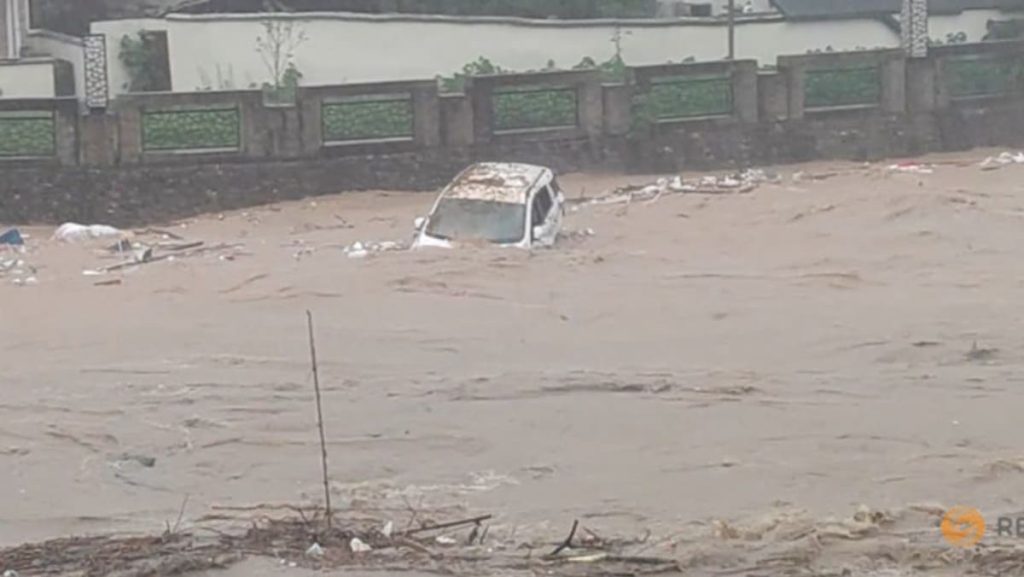. The extreme weather conditions began on Friday and created havoc in the region, causing widespread damage to homes and infrastructure. Officials are working to provide relief and support to those affected by the severe weather, with emergency response teams deployed to assist in the rescue and evacuation efforts. The town of Shalan in Guangdong province was completely evacuated as a precautionary measure to ensure the safety of residents.
The heavy rains, hail, and strong winds have led to flooding in many areas, causing traffic disruptions and power outages. Local authorities have issued warnings for potential landslides and are closely monitoring the situation to ensure the safety of residents. The severe weather conditions have also impacted agriculture in the region, with crops and farmland being damaged by the heavy rainfall and hail. Efforts are being made to assess the extent of the damage and provide assistance to farmers in need.
In addition to the immediate impact on communities and infrastructure, the severe weather in southern China has also raised concerns about the long-term effects of climate change. Scientists have warned that extreme weather events, such as the heavy rains and hail seen in Guangdong province, are becoming more frequent and intense due to climate change. This has prompted calls for increased efforts to mitigate the effects of global warming and reduce greenhouse gas emissions to prevent further damage from extreme weather events.
The evacuation of the town of Shalan in Guangdong province highlights the importance of preparedness and proactive measures in the face of extreme weather events. Authorities have been urged to strengthen disaster management and response capabilities to better cope with future challenges. This includes implementing early warning systems, improving infrastructure resilience, and enhancing community awareness and preparedness for natural disasters. The evacuation of Shalan demonstrates the need for swift and coordinated action to protect lives and property during emergencies.
As recovery efforts continue in the wake of the severe weather in southern China, the focus is on providing assistance to those affected and rebuilding damaged infrastructure. Efforts are being made to restore power and water supplies, clear debris, and assess the extent of the damage caused by the extreme weather. The resilience and strength of the affected communities will be tested as they work together to overcome the challenges brought about by the severe weather conditions. Cooperation and support from government agencies, non-governmental organizations, and the public will be crucial in the recovery process.
The recent extreme weather events in southern China serve as a stark reminder of the vulnerability of communities to the impacts of climate change. As the frequency and intensity of extreme weather events increase, it is imperative that proactive measures are taken to build resilience and adapt to changing climate conditions. This includes investing in sustainable infrastructure, promoting disaster risk reduction measures, and raising awareness about the importance of climate action. By working together and taking decisive action, communities can better prepare for and respond to the challenges posed by extreme weather events in the future.


